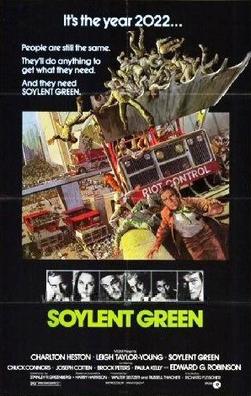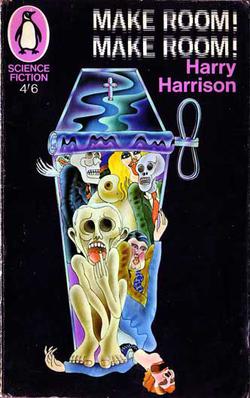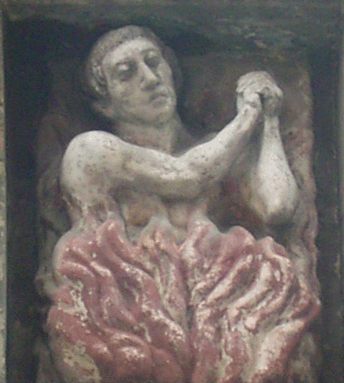原油価格上昇と資源枯渇の神話
The myth of rising oil prices and resource depletion
原油価格上昇と資源枯渇の神話
The myth of rising oil prices and resource depletion
資源枯渇(この場合は原油)の噂に関して、グローバル経済に大きな影響を与えたのが石油ショック=1973年の原油危機(1973 oil crisis) である。この経済的パニックとローマクラブによ る報告書『成長の限界』の公刊にはおおいなる関係があるというのが、アカロフとシラーの『アニマルスピリット』所説である。
「1970年代の原油価格上昇は、人口爆発やそれがもたらす商品不足などに関するすさまじいレトリックを伴った。石油危機が10年後に終 わったときには、このレトリックは消えはしないにし//ても、大幅に減った。OPECの生産調整のちょうど18ヵ月前、マサチューセッツ工科大学の研究者 チームが、ジェイ・フォレスター(Jay Wright Forrester, 1918-2016)の指導下で警鐘的な報告を発表した。フォレスターは20年ほど前に、初の普及型大型コンピュータであるIBM650の磁気 メモリシステムを設計したコンピュータ科学者として有名だった。かれの報告は、世界の天然資源が枯渇しつつあると結論づけていた。
この研究は『成長の限界:人類の命運に関するローマクラブのプロジェクト報告』と題されており、世界的に壊滅的な経済問題が訪れると予測 していた。あるシナリオだと21世紀末には、世界人口の四分の一から半分が死ぬ。天然資源のすさまじい不足で資源価格が高騰するため、やがて「死亡率は食 料と保健サービスの不足により上昇する」。批判者たちは、この報告の前提が怪しいと論じたが、フォレスターの名声でこの報告は世間的な信用を得た。だが 『成長の限界』は当時の一般的な考え方の典型的な症例となっていた。 そしてこの見方は、OPECの大臣たちがカルテルを組むための後押しとなった。いまの 原油生産を減らせば、即座に価格が上がって報われるばかりではない。残り少ない原油を、万が一のために温存することになるし、そのときにはその値段はもっ と高くなっている。そしてもちろん、OPEC の決断は、ローマクラブの結果を信じる人々にとっては何よりの証拠となった。原油価格が目の前で3倍になったじゃないか、自分たちの理論の劇的な裏付けと してこれ以上のものがあるか、というわけだ。
だがそこで考えられないことが起こった。1980年代の深刻な不況の後で、原油価格は下がった。そして、しばらくの間ではあったが、資源 枯渇の記事も減った。プロクエスト(ProQuest)の//新聞記事検索で『ニューヨーク・タイムズ』、『ロサンゼルス・タイムズ』、『ワシントンポス ト』から、確認埋蔵量と原油ということばを含む記事を検索してみると、それを確認できる。1965年から69年の5年間では、これらのことばを含む記事は 18件のみ。1970年から74年だと、それが60記事。1975年から79年では115件、1980年から84年では137件、そして1985年から 89年ではたった73件。再生不可能資源ということばを含む記事かけても、似たようなパターンとなっている。
もちろんこれらの時期におけるOPEC と石油産業の台頭と衰退においては、経済や政治的な問題も大きな役割を果たしている。そして——原油価格が2008年7月2日にバレル145.31ドルと いうピークを迎えてから再び崩壊したことからも示唆されるように——確かに資源は有限だ。地球温暖化は脅威として迫っている。だが地球と原油生産をめぐる こうした長期的な見通しの中、原油価格やそれに関する物語は、株式市場やその神話と驚くほどにている。変動しすぎるだ。ここでも、天気予報をしているのが だれであれ、そいつはクビにするべきだ※」(アカロフとシラー 2009:214-216)。
※ただし山形浩生のあとがき(山形 2009:274)によると「クビにしろ」というのはさすがに著者たちの極論であると論評している。また、私(池田)は、アカロフとシラーのこのマインド (=「非合理な奴はクビにしろ!」という情動) もまた合理性に裏付けられない、アニマル・スピリットではないかと思われます。「パイオニアたちはしばしば、最終的に損をするんじゃないかという考えに襲 われます(これは経験的に私たちも彼らもまちがいなく知っていることです)が、アニマルスピリットの働きがあればこそ、健康な人が死の予想を無視するよう に、そうした考えも振り払えるのです」(ケインズ 2012:233)
今から考えると、人口は幾何級数的に増えるのに、農業生産は算術級数的にしか増加しないので、人口増による貧困に人類社会は直面するというトマス・ロバート・マルサス(Thomas Robert Malthus, 1766-1834)の20世紀の後半の四半世紀のエコロジー危機を煽るネオ・マルサス的的な警鐘を鳴らしたということだろうか。ちなみに、経済成長を比 較した2枚目の図には、21世紀の世界経済の牽引国とも言える中国の名がない。
ち なみに、アニマル・スピリット(animal spirit)とは、「企業家の投資行動の動機となる、将来に対する主観的な期待。英国の経済学者ケインズが「雇傭・利子および貨幣の一般理論」のなかで 使用した用語。経済活動の多くは合理的動機に基づいて行われるが、その一方で、将来の収益を期待して事業を拡大しようとする、合理的には説明できない不確 定な心理によって左右されるとし」たものとのことだ(出典:「アニマルスピリット」デ ジタル大辞泉)。
●もう少し別の観点から:サステイナブルな安楽死とは?(ソイレントグリーンの思想)philisophy of Soylent Green
 |
Soylent Green
is a 1973 American ecological dystopian thriller film directed by
Richard Fleischer, and starring Charlton Heston, Leigh Taylor-Young and
Edward G. Robinson in his final film role. Loosely based on the 1966
science fiction novel Make Room! Make Room! by Harry Harrison (1925-2012), the
film
combines police procedural and science fiction genres, the
investigation into the murder of a wealthy businessman and a dystopian
future of dying oceans and year-round humidity, due to the greenhouse
effect, resulting in pollution, poverty, overpopulation, euthanasia and
depleted resources.[2] In 1973, it won the Nebula Award for Best
Dramatic Presentation and the Saturn Award for Best Science Fiction
Film.【Critical response】The film was released April 19, 1973 and met
with mixed reactions from critics.[8] Time called it "intermittently
interesting", noting that "Heston forsak[es] his granite stoicism for
once" and asserting the film "will be most remembered for the last
appearance of Edward G. Robinson.... In a rueful irony, his death
scene, in which he is hygienically dispatched with the help of piped-in
light classical music and movies of rich fields flashed before him on a
towering screen, is the best in the film".[9] New York Times critic A.
H. Weiler wrote "Soylent Green projects essentially simple, muscular
melodrama a good deal more effectively than it does the potential of
man's seemingly witless destruction of the Earth's resources"; Weiler
concludes "Richard Fleischer's direction stresses action, not nuances
of meaning or characterization. Mr. Robinson is pitiably natural as the
realistic, sensitive oldster facing the futility of living in dying
surroundings. But Mr. Heston is simply a rough cop chasing standard bad
guys. Their 21st-century New York occasionally is frightening but it is
rarely convincingly real".[8] Roger Ebert gave the film three stars out
of four, calling it "a good, solid science-fiction movie, and a little
more".[10] Gene Siskel gave the film one-and-a-half stars out of four
and called it "a silly detective yarn, full of juvenile Hollywood
images. Wait 'til you see the giant snow shovel scoop the police use to
round up rowdies. You may never stop laughing".[11] Arthur D. Murphy of
Variety wrote, "The somewhat plausible and proximate horrors in the
story of 'Soylent Green' carry the Russell Thacher-Walter Seltzer
production over its awkward spots to the status of a good futuristic
exploitation film".[12] Charles Champlin of the Los Angeles Times
called it "a clever, rough, modestly budgeted but imaginative
work".[13] Penelope Gilliatt of The New Yorker was negative, writing,
"This pompously prophetic thing of a film hasn't a brain in its
beanbag. Where is democracy? Where is the popular vote? Where is
women's lib? Where are the uprising poor, who would have suspected what
was happening in a moment?"[14] On Rotten Tomatoes the film has an
approval rating of 72% rating, based on 39 reviews, with an average
rating of 6.10/10.[15] A German film encyclopedia notes "If you want,
you can see a thrilling crime thriller in this film. By means of
brutally resonant scenes, however, the director makes clear a far
deeper truth [...] Soylent Green must thus be understood as a metaphor.
It is the radical image of the self-consuming madness of capitalist
mode of production. The necessary consequences of the reification of
'human material' to the point of self-destruction are forcefully
brought home to the viewer".[16] ※人間がいっぱい / ハリイ・ハリスン著 ; 浅倉久志訳, 早川書房 , 1971.4. - (ハヤカワ・SF・シリーズ ; 3269) |
 |
Make
Room! Make Room!
is set in an overpopulated New York City in 1999 (33 years after the
time of writing). 30-year-old Police Detective Andy Rusch lives in half
a room, sharing it with Sol, a retired engineer who has adapted a
bicycle to generate power for an old television set and a refrigerator.
When Andy lines up for their continually reducing water ration, he
witnesses a public speech by the "Eldsters", older people forcibly
retired from work. A riot breaks out after a nearby food shop has a
surprise sale on "soylent" (soy and lentil) steaks. The shop is looted
by the mob. Billy Chung, an 18-year-old Tawainese-American, grabs a box
of steaks. He eats some of them and sells the rest to raise enough
money to land a job as a Western Union messenger boy. His first
delivery takes him into a fortified apartment block, complete with the
rare luxuries of air conditioning and running water for showers. He
delivers his message to a rich racketeer named "Big Mike" O'Brien and
sees Shirl, Mike's 23-year-old live-in mistress. Billy leaves the
apartment, but fixes it so he can get back into the building later. He
breaks into Mike's place, but when Mike catches him in the act, Billy
accidentally kills him and flees, empty-handed.
A piece of evidence may connect an out-of-town crime boss who may be
trying to expand into New York City, a threat to Mike's associates.
They see to it that Andy keeps working on the case, in addition to his
regular duties.
During his investigation, he becomes enamored of Shirl. He ensures that
she is permitted to stay in the apartment until the end of the month.
During this month, they enjoy the luxuries. Afterwards Shirl moves in
with Andy. Shirl soon becomes disappointed with how little time the
overworked Andy has for her. She eventually sleeps with a wealthy man
she meets at a party.
To evade capture, Billy leaves the city, eventually breaking into the
abandoned Brooklyn Navy Yard, where he comes to live with Peter, who is
eagerly awaiting the new millennium as the end of the world. Soon they
are attacked and displaced by a trio. They find a new home in a car.
Months after the murder, Billy decides to visit his family, believing
the police have lost interest in him.
Meanwhile, Sol decides he can no longer remain passive in the face of
humanity's overpopulation crisis. He joins a march to protest the
overturning of a legislative bill that supports population control. Sol
is injured in a riot and catches pneumonia. A few days after his death,
an obnoxious family takes over his living quarters, making Shirl and
Andy's life much more miserable than before.
Andy stumbles upon Billy Chung, cornering him in his family's home.
When Billy moves to attack Andy with a knife, he stumbles, and Andy
accidentally shoots and kills him. The gangsters have lost interest by
this point, but his superiors disavow Andy's actions, and he is
temporarily demoted to ordinary patrolman. When he returns to his
quarters, he finds Shirl has left him.
Andy is on patrol in Times Square on New Year's Eve, where he spots
Shirl among rich party-goers. As the clock strikes midnight, Andy
encounters Peter, who is distraught that the world has not ended and
asks how life can continue as it is. The story concludes with the Times
Square screen announcing that "Census says United States had biggest
year ever, end-of-the-century, 344 million citizens." |
リンク
文献
その他の情報
Copyleft, CC, Mitzub'ixi Quq Chi'j, 1996-2099

++
Copyleft,
CC, Mitzub'ixi Quq Chi'j, 1996-2099